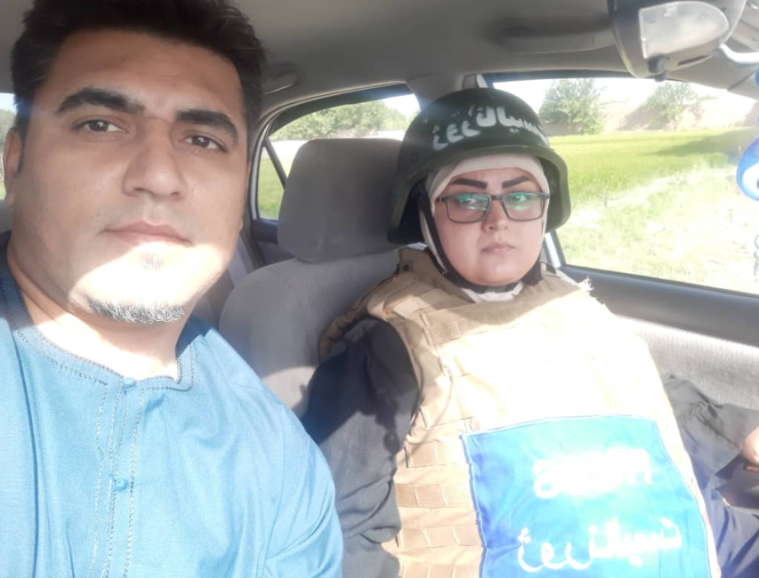On August 1, 2021, Taliban fighters in the outskirts of Herat city, in western Afghanistan, fired shots at a car carrying Shakib Shams, a correspondent with the national radio service Salam Wantadar, and Storai Karimi, a reporter for the independent news agency Pajhwok Afghan News, and abducted them for approximately 25 minutes, according to Shams, who spoke with CPJ via messaging app, a report by Salam Wantadar, and a tweet by the Afghanistan Journalists Safety Committee, a local press freedom watchdog group. Najib Sharifi, director of the Afghan Journalists Safety Committee, confirmed the shooting incident and abduction of Shams and Karimi to CPJ via messaging app.
At approximately 10:00 a.m. on August 1, Shams and Karimi were driving from Darb-e-Kandahar toward the Malan Bridge, both located in the outskirts of Herat city, approximately 50 meters (165 feet) away from where two armored vehicles of Afghan security forces were stationed, when a Taliban commander and fighter fired several shots at their car, hitting a side mirror, side window, and the back of the car, but leaving them uninjured, according to Shams and Salam Wantadar. Shams and Karimi had been reporting on the ongoing clashes between Afghan security forces and Taliban fighters in the area since July 30, Shams said.
The commander and fighter then approached Shams and Karimi’s car and ordered them to come into an alley, where 10 to 15 Taliban fighters armed with light and heavy weapons surrounded them, Shams said.
The commander, who identified himself as the Taliban district governor of the Injil district in Herat province, pointed a gun at Karimi and ordered her to remove her bulletproof vest and helmet, and Karimi complied, Shams said, adding that he identified himself and Karimi as “journalists” and “neutral.”
Shams told CPJ that he then sent a text via messaging app to a group containing journalists across the country and Taliban spokesperson Zabiullah Mujahid, explaining that Taliban fighters had taken Shams and Karimi captive. Shortly thereafter, Mujahid responded, asked him the name of the commander of the group, and said that “action would be taken,” Shams said. Shams told CPJ that it was unclear if Mujahid intervened to secure Shams and Karimi’s eventual release. Mujahid did not respond to CPJ’s request for comment via messaging app.
The commander questioned Shams and Karimi about their reporting and looked through the contacts and recent calls on their phones before returning them, Shams said. The commander then allowed Shams to speak with a second commander of higher rank via phone, whose name Shams was unable to identify, he said. The second commander ordered Shams and Karimi to produce positive reports about the Taliban and to interview locals about the Taliban’s presence in the area, to which they agreed, Shams said.
When several locals refused to be interviewed, a Taliban fighter agreed to participate in the interview, Shams said.
The commander gave Shams his phone number, told him to share the links of the reports, and warned him that if they did not broadcast the interview, “we will know.” Shams told CPJ that he and Karimi did not broadcast the interview due to its one-sidedness and fear of reprisal by Afghan authorities.
On July 16, 2021, Reuters photojournalist Danish Siddiqui was killed while covering a clash between Afghan security forces and Taliban fighters in Spin Boldak, near the border with Pakistan, as CPJ documented at the time.
